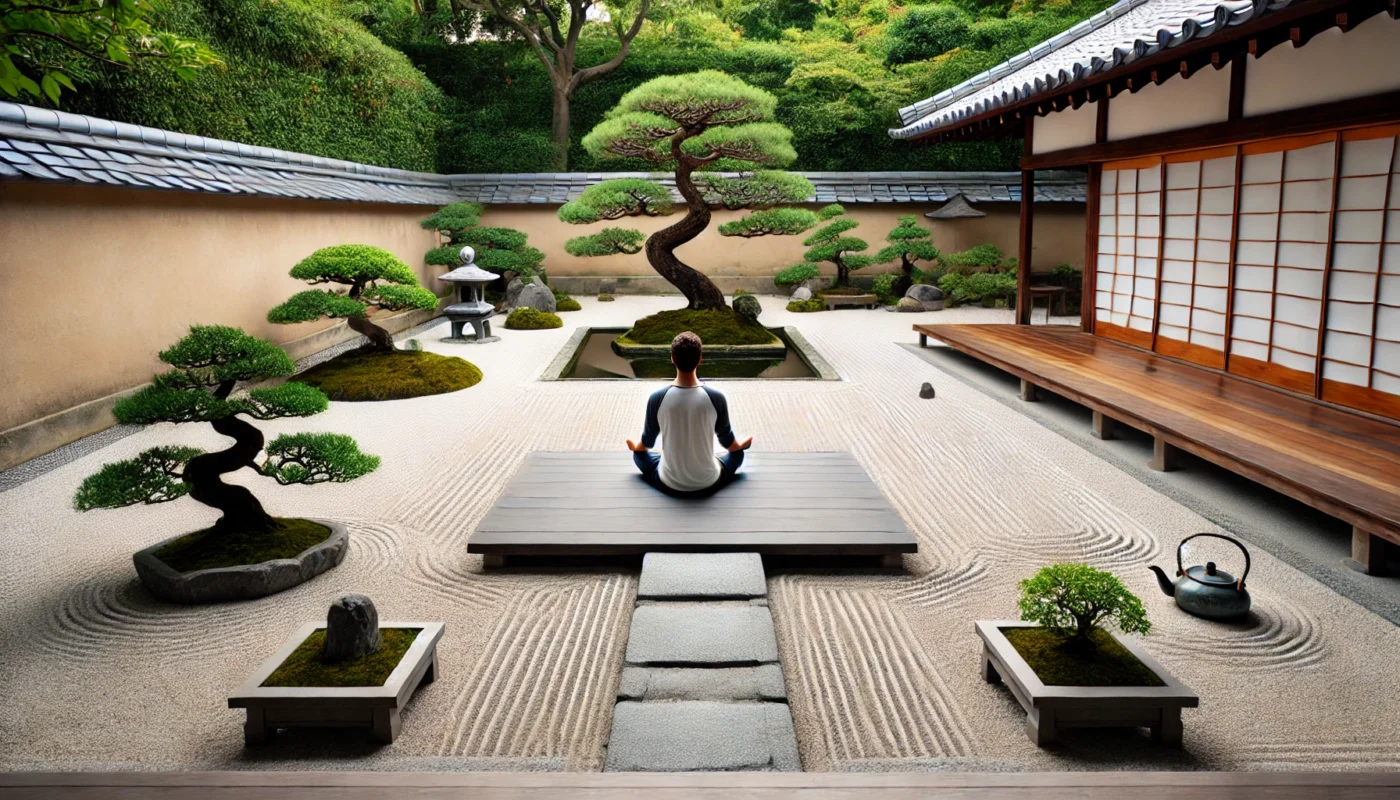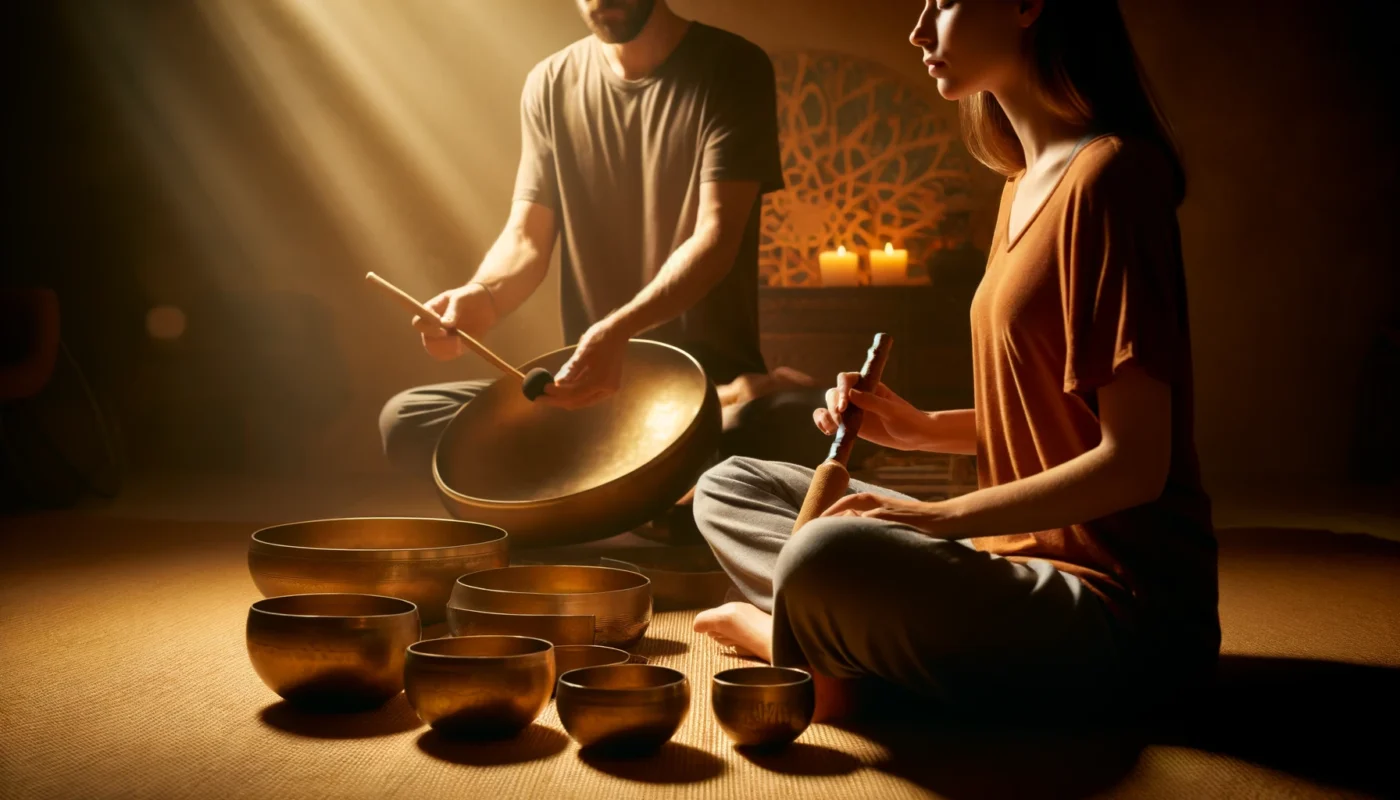In this article, we will delve into various alternative therapies that offer promising results for anxiety relief. Whether you’re a fitness enthusiast, health aficionado, or someone managing medical conditions, these insights will provide you with a comprehensive understanding of how to incorporate alternative medicine for stress and anxiety coping strategies into your wellness routine.
You may also like: Exploring Alternative Treatments for Pain Relief
Understanding Anxiety and Its Impacts
Anxiety is a complex condition characterized by feelings of worry, nervousness, or fear that can interfere with daily activities. It’s important to understand that anxiety is not just a mental condition but can manifest physically, leading to symptoms such as increased heart rate, sweating, and fatigue. Traditional treatments often include medication and psychotherapy, but alternative therapies can offer additional avenues for relief.
The Psychological Effects of Anxiety
Anxiety can significantly impact mental health, leading to issues such as depression and chronic stress. It can alter thought processes and behavior, causing people to avoid situations that trigger anxiety. Understanding these effects is crucial for managing anxiety effectively.
Physical Manifestations of Anxiety
Beyond mental distress, anxiety manifests physically, with symptoms that include headaches, muscle tension, and gastrointestinal problems. Recognizing these physical signs can help in identifying anxiety early and seeking appropriate treatment.
Common Triggers of Anxiety
Identifying triggers is a vital step in managing anxiety. Common triggers include stress, trauma, and significant life changes. By understanding what exacerbates anxiety, individuals can develop strategies to manage these triggers effectively.
Traditional Treatments vs. Alternative Approaches
Traditional treatments such as medication and cognitive-behavioral therapy (CBT) have proven effective for many. However, the rise in popularity of alternative therapies reflects a shift towards more holistic, personalized care. This section will explore how these two approaches can complement each other.
The Rise of Alternative Therapies
The growing interest in alternative therapies is driven by a desire for more holistic and personalized care. Many individuals seek treatments that align with their personal beliefs and offer fewer side effects than conventional medications.
Historical Context of Alternative Therapies
Alternative therapies have roots in ancient practices across various cultures. Understanding their historical context provides insight into their enduring appeal and effectiveness. Practices like Ayurveda, Traditional Chinese Medicine, and Native American healing rituals have stood the test of time.
Modern Adoption and Integration
Today, alternative therapies are increasingly integrated into mainstream healthcare. Hospitals and clinics worldwide are adopting practices such as acupuncture and yoga, recognizing their benefits in comprehensive care strategies.
Personalization and Autonomy in Healing
One of the main appeals of alternative therapies is the emphasis on personalized care. These practices empower individuals to take an active role in their healing process, fostering a sense of autonomy and control over their well-being.
Cultural and Societal Influences
The increasing popularity of alternative therapies is also influenced by cultural shifts towards natural and sustainable living. Society’s growing awareness of the body-mind connection has fueled interest in therapies that promote holistic health.
Popular Alternative Therapies for Anxiety
Mindfulness and Meditation
Mindfulness and meditation are powerful tools for managing anxiety. By fostering a state of awareness and acceptance of the present moment, these practices help reduce stress and promote relaxation. Research indicates that regular meditation can decrease anxiety levels, enhance emotional health, and improve overall well-being.
The Science Behind Mindfulness
Studies have shown that mindfulness practices can alter brain function, enhancing areas responsible for emotional regulation and self-awareness. This neuroplasticity underlines the effectiveness of mindfulness in managing anxiety.
Techniques and Practices
Various meditation techniques, such as mindfulness meditation, loving-kindness meditation, and body scan, offer unique benefits. Experimenting with different practices can help individuals find what resonates most with them.
Creating a Mindful Environment
Establishing a peaceful environment is crucial for effective meditation. Consider factors such as lighting, sound, and even scent to create a space conducive to mindfulness practice.
Overcoming Common Challenges
Many beginners face challenges such as restlessness and intrusive thoughts. Understanding these obstacles and learning strategies to overcome them can enhance the meditation experience.

Yoga
Yoga combines physical postures, breathing exercises, and meditation to create a comprehensive practice for anxiety relief. It enhances flexibility, strength, and mental clarity while promoting relaxation and reducing stress levels. Studies show that yoga can significantly lower anxiety and improve mood.
Types of Yoga for Anxiety
Different styles of yoga, such as Hatha, Vinyasa, and Yin, offer various benefits for anxiety management. Exploring these styles can help individuals find the best fit for their needs.
The Role of Breathwork
Breathwork is a fundamental component of yoga that significantly impacts anxiety levels. Techniques such as pranayama can help regulate the nervous system and promote a sense of calm.
Incorporating Yoga into Your Routine
Start with beginner classes or online tutorials that focus on gentle poses and breathing techniques. Incorporating yoga into your daily routine, even for just 10-15 minutes, can make a noticeable difference in your anxiety levels.
Building a Home Practice
Creating a home yoga practice allows for flexibility and convenience. Consider investing in a yoga mat and exploring online resources to support your practice at home.
Aromatherapy
Aromatherapy involves using essential oils to promote physical and psychological well-being. Certain scents, such as lavender, chamomile, and bergamot, have calming properties that can help alleviate anxiety symptoms.
Understanding Essential Oils
Essential oils are concentrated plant extracts with therapeutic properties. Learning about their origins and benefits can enhance their application for anxiety relief.
Methods of Application
There are various ways to use essential oils, including diffusion, topical application, and inhalation. Each method offers unique advantages, allowing for versatility in their use.
Selecting the Right Oils
Choosing the right essential oils is essential for effective aromatherapy. Consider factors such as scent preference and desired effects when selecting oils for anxiety relief.
Safety and Precautions
While generally safe, essential oils require careful handling. Understanding potential side effects and proper dilution techniques is crucial for safe use.
Acupuncture
Acupuncture, a traditional Chinese medicine practice, involves inserting thin needles into specific points on the body to balance energy flow. It has gained popularity as an alternative therapy for anxiety, with studies suggesting it can reduce anxiety symptoms and improve overall mental health.
The Principles of Acupuncture
Acupuncture is based on the principle of balancing the body’s energy, or Qi. This section will explore how this ancient practice aligns with modern understandings of energy flow and healing.
What to Expect in a Session
Understanding what to expect in an acupuncture session can alleviate apprehensions. A typical session includes an initial consultation, needle insertion, and relaxation period.
Research and Evidence
Scientific studies have begun to validate the effectiveness of acupuncture for anxiety. This section will delve into the research supporting its benefits and potential mechanisms of action.
Finding a Qualified Practitioner
It’s essential to seek a licensed and experienced acupuncturist to ensure safe and effective treatment. They will tailor the sessions to address your specific needs and help manage your anxiety.
The Science Behind Alternative Therapies
The effectiveness of alternative therapies for anxiety is supported by an increasing body of scientific research. Studies demonstrate that these therapies can have a positive impact on the brain’s neurochemistry, reduce cortisol levels, and promote relaxation. However, it’s crucial to approach these therapies with an open mind and realistic expectations.
Neurochemical Changes
Alternative therapies have been shown to influence the brain’s chemistry, enhancing neurotransmitters that promote relaxation and well-being. Understanding these changes can provide insight into their effectiveness.
Stress Hormones and Relaxation
Research indicates that practices such as meditation and yoga can lower cortisol levels, the body’s primary stress hormone. This reduction is key to their role in anxiety management.

Holistic Health Benefits
Beyond anxiety relief, alternative therapies offer a range of health benefits, including improved sleep, enhanced immune function, and greater emotional resilience. These comprehensive benefits highlight their appeal.
Limitations and Considerations
While promising, alternative therapies are not a cure-all. Understanding their limitations and the importance of integrating them with traditional care is crucial for effective anxiety management.
Integrating Alternative Therapies with Traditional Treatments
While alternative therapies offer numerous benefits, they should not replace traditional medical treatments. Instead, they can be used in conjunction with conventional methods to enhance overall well-being and anxiety management. Always consult with a healthcare professional before starting any new treatment regimen.
Creating a Balanced Approach
Integrating alternative and traditional therapies requires a balanced approach. This section will explore strategies for creating a cohesive treatment plan that addresses all aspects of anxiety.
Consulting Healthcare Professionals
Open communication with healthcare providers is essential when incorporating alternative therapies. Professionals can offer guidance on safe and effective integration.
Monitoring Progress and Adjustments
Regularly monitoring progress and making necessary adjustments is vital for successful anxiety management. This approach ensures therapies remain effective and aligned with individual needs.
Case Studies and Success Stories
Real-life examples of successful integration of alternative and traditional therapies can provide inspiration and practical insights for others considering this approach.
Practical Tips for Implementing Alternative Therapies
- Start Slowly: Incorporate one therapy at a time to determine its effectiveness for you.
- Consistency is Key: Regular practice is essential for achieving long-term benefits.
- Listen to Your Body: Pay attention to how your body and mind respond to different therapies and adjust accordingly.
- Seek Professional Guidance: Work with qualified practitioners to ensure safe and effective application of these therapies.
Starting with One Therapy
Introducing one therapy at a time allows for careful observation of its effects. This measured approach helps in identifying what works best for individual needs.
Maintaining Consistency
Consistency in practice is crucial for reaping the full benefits of alternative therapies. Establishing a regular routine can enhance their effectiveness over time.
Tuning into Your Body’s Feedback
Listening to the body’s signals can guide adjustments in therapy practices. This responsiveness ensures a tailored and effective approach to anxiety management.
Leveraging Professional Expertise
Qualified practitioners can provide valuable insights and support. Their expertise ensures safe and effective application of alternative therapies for anxiety.

Conclusion
Exploring alternative therapies for anxiety relief can offer new pathways to achieve mental and emotional balance. By integrating practices such as mindfulness, yoga, aromatherapy, and acupuncture into your lifestyle, you can effectively manage anxiety and improve your overall quality of life. These therapies provide a holistic approach that complements traditional treatments and empowers you to take control of your well-being.
Remember, the journey to anxiety relief is personal and varies for each individual. Stay informed, be patient, and most importantly, be kind to yourself as you navigate the world of alternative therapies.
Embracing a Holistic Lifestyle
Incorporating alternative therapies is part of embracing a holistic lifestyle that values balance and well-being. This approach fosters a comprehensive sense of health and harmony.
The Personal Nature of Healing
Each person’s path to anxiety relief is unique. Recognizing this individuality allows for a more compassionate and effective healing journey.
Continuous Learning and Adaptation
Staying informed about new developments in alternative therapies can enhance their application. An open-minded and adaptive approach ensures ongoing benefits and growth.
Encouragement for the Journey
Embarking on the path of alternative therapies requires courage and commitment. Encouragement and support can make this journey more rewarding and fulfilling.
Further Reading:
13 Over-the-Counter (OTC) Natural Remedies for Anxiety
alternative therapies, anxiety management, holistic health, neurochemistry, stress reduction, mindfulness, yoga, meditation, cortisol levels, emotional resilience, healthcare professionals, treatment integration, personal healing, continuous learning, wellness, mental health
Important Note: The information contained in this article is for general informational purposes only, and should not be construed as health or medical advice, nor is it intended to diagnose, prevent, treat, or cure any disease or health condition. Before embarking on any diet, fitness regimen, or program of nutritional supplementation, it is advisable to consult your healthcare professional in order to determine its safety and probable efficacy in terms of your individual state of health.
Regarding Nutritional Supplements Or Other Non-Prescription Health Products: If any nutritional supplements or other non-prescription health products are mentioned in the foregoing article, any claims or statements made about them have not been evaluated by the U.S. Food and Drug Administration, and such nutritional supplements or other health products are not intended to diagnose, treat, cure, or prevent any disease

